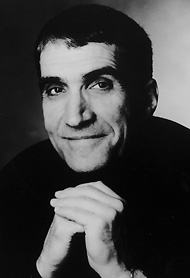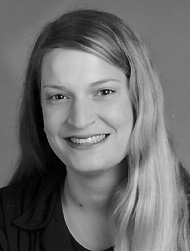![]()
Departments
![]()

|
Week of 15 October 1999 |
Vol. III, No. 10 |
Feature Article
|
|
By Eric McHenry
When Glenn Loury steps up to a podium, one expects lines of socioeconomic analysis, not lines of Rilke. But on October 28 in Jacob Sleeper Auditorium, Loury will turn his attention from the econometrical to the metrical.
What else but the Favorite Poem Project (FPP), the main undertaking of Robert Pinsky's U.S. poet laureateship, could make such a thing happen? Pinsky, CAS professor of English, has invited about 20 people from the area to take part in Bostonians' Favorite Poems, a public event celebrating the project. Each participant will read a favorite poem and explain to the audience, in a few sentences, its personal significance. Loury, CAS professor of economics, is an ideal participant because he confirms one of the project's organizing premises: that poetry has an important place in the lives of people other than poets and literary scholars.
"I do read some poetry, and of late I've been reading more," says Loury, who is also a UNI professor, director of the Institute on Race and Social Division, and an esteemed cultural critic. "I've been reading Rilke, and I've been stunned by him."
He says that the FPP, which will have as its centerpiece an audio and video archive of 1,000 Americans reading their best-loved poems aloud, is "a terrific idea. I'm very excited about being a part of it."
|
|
|
Robert Pinsky |
"There are about 50," he admits.
The reading roughly coincides with two major developments for the project: its adoption by the Academy of American Poets, and publication of its print anthology, Americans' Favorite Poems (Norton, 1999), coedited by Pinsky and Dietz. It comprises 200 poems culled from the project's submissions, with excerpts from 260 nominating letters.
Like the audio and video archive, the upcoming reading, and the more than 400 other FPP events that have taken place around the country, Americans' Favorite Poems reflects the demographic diversity of the nearly 18,000 people who applied to the project, Dietz says. She points with enthusiasm to a piece called "The Way of the Water-Hyacinth" by the Burmese poet Zawgee, translated by its nominator, Lyn Aye of California. Both the translation and the excerpt from Aye's letter are richly alliterative: "Because of its bent, its bite. Because it's Burmese, because it's Buddhist, because it's beautiful," Aye writes of the poem, which contains the lines "Spinning, swamped, slimed, sunk / She rises, resolute / Still crowned by petals."
"One of the things that's fun about the book is that it's the kind of anthology that really runs the stylistic and cultural gamut," Dietz says. "Robert and I couldn't have put together a book this diverse without hearing what people had to say about the poems. This mix never could have been conceived without these tremendous contributions, these letters."
|
|
|
Maggie Dietz
|
"We must be at mile 14 or 15," he says. "Production is starting. Selection has been partly accomplished. We're not inviting submissions anymore. There are more poems on the Web site all the time. It may be that the Heartbreak Hill is completing the fundraising and the production, and that's still ahead of us. But we're certainly more than halfway there."
Seeing them down the home stretch will be the Academy of American Poets, the nation's largest organization dedicated exclusively to the promotion of poetry. This month, the academy joins Pinsky, the Library of Congress, the New England Foundation for the Arts, and BU as one of the project's partners. The FPP, Pinsky says, will become a resource for the academy's new Online Poetry Classroom, a program designed to help make poetry integral to literary education.
"We're very excited that the academy has adopted us," says Pinsky. "It means that after Maggie and I go on to pursue our other interests, there will be an organization to provide a harbor for the project indefinitely."
The Bostonians' Favorite Poems reading will take place at 7 p.m. on October 28 in Jacob Sleeper Auditorium, the College of General Studies, 871 Commonwealth Ave. It is free and open to the public. For more information, contact the FPP office at 617-353-2821. The FPP Web site is www.favoritepoem.org.


